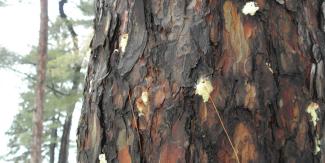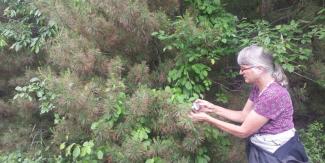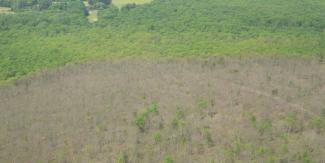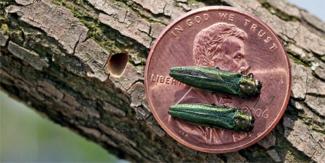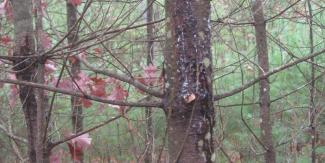Forest Health Program
The mission of the Forest Health Program is to protect the health, vigor, and resiliency of our rural and urban forests. Staff survey and monitor our forests for:
- circumstances that may pose a risk to forest health, such as insects or diseases, and
- evidence of harm from abiotic factors such as pollution, fire, drought, ice storms, or damaging winds.
With the information collected, informed decisions can be made as to how to protect and manage our forest resource.
While some threats to our forest are native to the region, there is an increase in serious threats arising from non-native and invasive pests, diseases, and plants. Because our forests did not evolve with these threats, the trees typically have limited or no natural defense mechanisms that enable them to withstand attack, or competition. Exotic species such as the Asian Longhorned Beetle, and Emerald Ash Borer are only two examples of introduced species of concern, and it seems more introduced and damaging problems are discovered every year. To protect our forests, it is important to maintain a watchful eye, and avoid behaviors known to spread forest pests such as transporting firewood long distances or from out of state.
The Forest Health Program's success relies heavily on our relationships with our Federal, State, Municipal, and private sector partners, and with the cooperation of private forest landowners and the public.
Additional Resources
- Current Threats to Forest Health
- Lymantria dispar (LDD) in RI (formerly gypsy moth)
- Forest Insect Pests App
- URI Pest and Disease Updates
- Annual "Forest Health Highlights" Reports
- "Don't Move Firewood" Campaign
- USDA Forest Health Program
- USDA Invasive Species
- Think you have seen an invasive/exotic forest pest? View our "Report-A-Pest" invasive species sighting form

